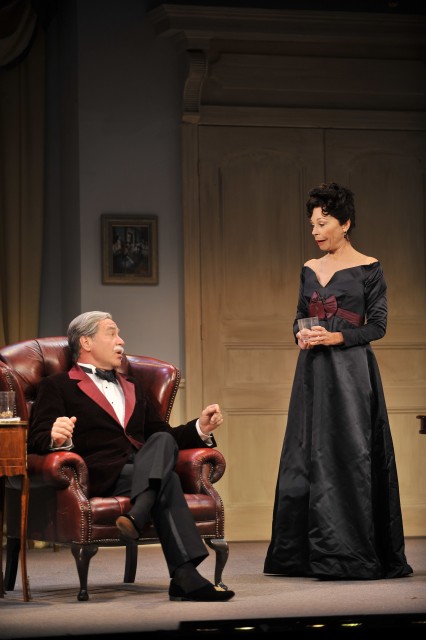My editor at Harcourt just told me that Rhythm Man: A Life of Louis Armstrong will be published in the fall of 2009.
Watch this space for further details.
If you feel like celebrating with me, do it by watching this video:
Archives for August 22, 2008
BOOK
David Thomson, “Have You Seen…?”: A Personal Introduction to 1,000 Films (Knopf, $39.95). A companion volume to The New Biographical Dictionary of Film in which my favorite film critic holds forth on a thousand variously significant movies–some great, some good, some awful–all discussed in quirky single-page essays that are models of pithy, quotable idiosyncrasy. Have You Seen…? will be the book of the season for smart filmgoers who love a good argument (TT).
CD
Louis Armstrong, Rudy Vallee’s Fleischmann’s Yeast Show & Louis’ Home-Recorded Tapes (Jazz Society, two CDs). Don’t be thrown by the elephantine title–this is the most important historical release of the decade. The first CD consists of previously unreleased 1937 airchecks from NBC’s Harlem Radio Review, the first variety series ever to be hosted by a black, in which Louis Armstrong and the Luis Russell band play as though the world were ending. The band never sounded remotely as hot as this on its commercial sides for Decca, and Armstrong is in full-tilt knock-’em-dead mode. The second CD consists of fascinating snippets from Armstrong’s private stash of postwar reel-to-reel after-hours recordings, the same tapes on which I drew in writing Rhythm Man. Absolutely not to be missed under any circumstances whatsoever (TT).
TT: Brave Coward
In today’s Wall Street Journal drama column I report on some (but not all!) of the shows I saw on my recent travels from hither to yon. This week I review the Berkshire Theatre Festival’s Noël Coward in Two Keys, the Peterborough Players’ Our Town, and the Williamstown Theater Festival’s Home. Here’s an excerpt.
* * *
 Noël Coward wrote a handful of serious plays, but hardly anybody does them anymore, and his reputation now rests exclusively on the divine frivolity of his ever-popular lighter-than-air comedies of bad manners. So naturally I couldn’t resist when the Berkshire Theatre Festival announced that it would be reviving “Noël Coward in Two Keys,” a double bill of one-act plays that includes “A Song of Twilight,” in which The Master (as his friends called him) shook off the caution of a lifetime and wrote with utter sincerity about the still-hot topic of homosexuality, a subject that he had previously handled with the longest of tongs. Coward, of course, was a gay man who grew up at a time when the British authorities threw gay men in jail for pursuing their sexual interests, which suffices to explain his protracted discretion. What is more surprising is that at the very end of his life he summoned up the nerve to write such a play–as well as the artfulness to make it one of his very best….
Noël Coward wrote a handful of serious plays, but hardly anybody does them anymore, and his reputation now rests exclusively on the divine frivolity of his ever-popular lighter-than-air comedies of bad manners. So naturally I couldn’t resist when the Berkshire Theatre Festival announced that it would be reviving “Noël Coward in Two Keys,” a double bill of one-act plays that includes “A Song of Twilight,” in which The Master (as his friends called him) shook off the caution of a lifetime and wrote with utter sincerity about the still-hot topic of homosexuality, a subject that he had previously handled with the longest of tongs. Coward, of course, was a gay man who grew up at a time when the British authorities threw gay men in jail for pursuing their sexual interests, which suffices to explain his protracted discretion. What is more surprising is that at the very end of his life he summoned up the nerve to write such a play–as well as the artfulness to make it one of his very best….
Thornton Wilder wrote most of “Our Town” at the MacDowell Colony, and it’s widely thought that he was inspired by the New Hampshire village in which America’s oldest artists’ colony is located. The townspeople have no doubt of it: “Welcome to Our Town” is emblazoned on Peterborough’s city-limits signs. As for the Peterborough Players, their relationship with the play goes all the way back to 1940, when Wilder supervised their first staging of “Our Town.” Now the company is celebrating its 75th anniversary by remounting Gus Kaikkonen’s 2000 production of Wilder’s beloved study of small-town life, and has invited James Whitmore back to reprise his performance as the Stage Manager. The Peterborough Players couldn’t have given themselves a better birthday present. This “Our Town” is perfectly, unassumingly right, a model of how to freshen a classic not by adding gimmicky touches of directorial frou-frou but simply by performing it the way it was written, adding only the enlivening force that makes an old chestnut seem brand new….
David Storey made a modest name for himself in this country four decades ago with “Home,” doubtless in large part because John Gielgud and Ralph Richardson came over from London to star in it. Since then, though, only one of Mr. Storey’s other plays has been seen on Broadway, and the Williamstown Theatre Festival’s revival of “Home” suggests the reason why: Mr. Storey is the kind of British playwright whose work doesn’t travel….
* * *
Read the whole thing here.
TT: Almanac
“I should have thought that even your cheap magazine mentality would have learnt by now that it is seldom with people’s characters that one falls in love.”
Noël Coward, A Song at Twilight
